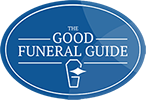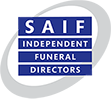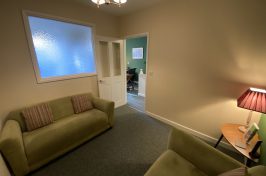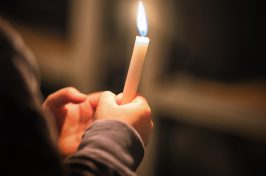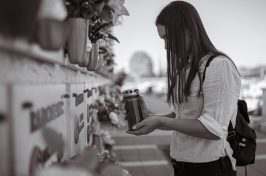What To Do After A Death
If you’re unsure what to do when a death occurs, you’re certainly not alone. Andrew Johnson Funeral Services have guided countless families and friends through the necessary steps that must be taken once someone has died. Below you will find a step-by-step guide.
Where has the death occurred?
- In the hospital – the hospital staff will get in touch with the deceased’s named person (emergency contact) as next of kin. This could be a family member or a friend. The body of the deceased will be kept in the hospital’s mortuary until the executor organises for them to be taken to your chosen funeral directors. The hospital will also organise for the nearest named person to collect any of the deceased’s possessions.
- At home – contact the doctor who tended to the deceased’s illness last, they will be able to certify the cause of death and issue you with their medical certificate. This will be placed into a sealed envelope and addressed to the funeral registrar.
- Unexpectedly – call the police who will be able to help you contact the deceased’s family doctor, closest relative and the deceased’s minister of religion, if applicable. If the death is not due to natural causes, do not remove or touch anything in the room. The death is likely to be referred to a coroner and the doctor may ask to carry out a post-mortem examination, to understand the cause of death before handing out their medical certificate confirming their death.
Register the death
Usually a death should be registered within 5 days, unless the cause of death is being investigated by the Coroner and in special circumstances this can be extended to 14 days.
The information you will need:
- Medical Certificate of Cause of Death
- Date and place of death
- Full name of the deceased (as well as their maiden name if the deceased was married)
- Their date and place of birth
- Their occupation (also, the full name and occupation of their spouse/civil partner)
- Their address
- If married/in a civil partnership, the date of birth of surviving significant other
- Their medical card
Documents required to verify the deceased includes:
- Passport
- Proof of address (council tax or utilities bills)
- If applicable, marriage or civil partnership certificate
- Birth certificate
- Your own current passport too (valid form of ID)
If you’d like guiding through what to do after death in Plumstead, Woolwich, Greenwich and further afield, contact Andrew Johnson Funeral Services who will provide understanding, low-cost and comprehensive services.


